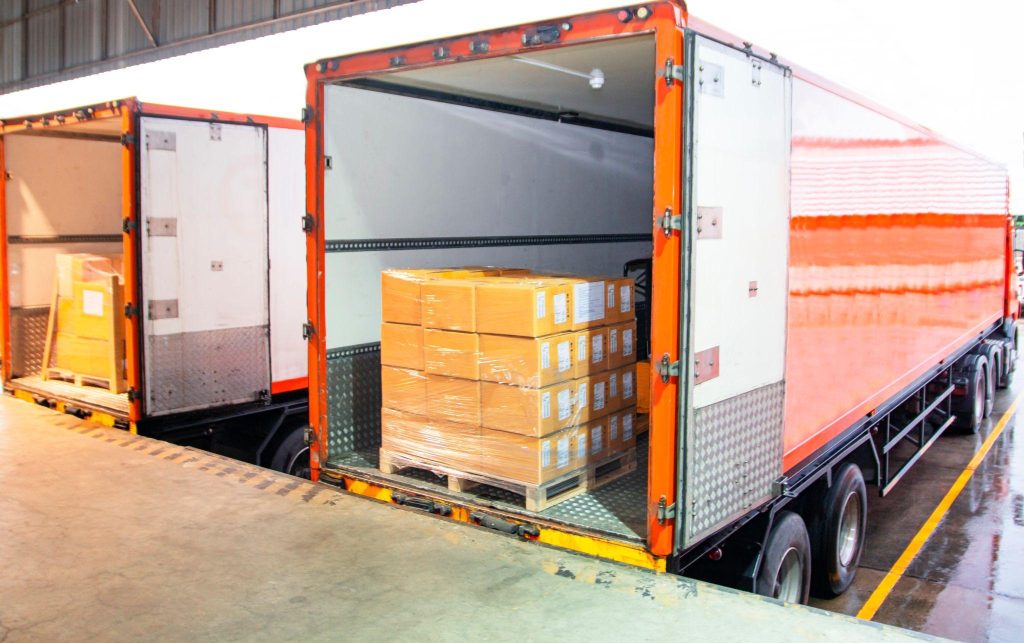When it comes to shipping, the demand for speed and the need for safety aren’t always in alignment. Cargo insurance can protect your most valuable shipments from losses due to theft or accidents. These days, that’s no small task. Cargo theft is rising, especially for food and beverage companies, with an average loss of $240,000. And that doesn’t include the catastrophic losses when shipments are simply lost in transit.
If you’ve been on the fence about cargo insurance, the following guide can help you make a well-informed decision.

What Does Cargo Insurance Cover?
Cargo insurance (or “freight insurance”) is designed to cover the value of your shipments during transit. Freight insurance will cover some or all of the value of these shipments, whether they are transported via air, rail, sea, or road. Cargo insurance will protect you from losses related to theft, damage, or general average.
The term “general average” is unique to marine carriers. If your carrier experiences a significant loss, they can declare “general average.” This means everyone with cargo aboard the ship will share in the expense. As you might expect, this can result in costly fees, especially when damage occurs to high-dollar items. Cargo insurance can help you cover these expenses when your company utilizes marine transport.
Typically, freight insurance can be purchased for each individual shipment. However, you also have the option of purchasing an open coverage policy that provides continuous coverage for all your shipments.
Do I Really Need Freight Insurance?
Cargo insurance isn’t a requirement. But consider the losses that you can incur during the shipping process. Carriers are only legally liable up to a certain limit, which varies by the mode of transportation. Sea carriers, for example, are only liable for up to $666.67 per package or 2 SDR (special drawing rights) per kg (roughly $2.65). Air freight carriers are only liable for 22 SDR per kg (roughly $29.15).
Chances are that you have many shipments that exceed these limits. This means that you could still lose a significant portion of the value of your cargo, even if you can prove that the carrier is liable. Proper insurance can give you added protection so you can complete shipments more confidently.
Types of Cargo Insurance

Not all forms of freight insurance are the same. Here are some of the most common types of cargo insurance.
All Risks Coverage
This type of cargo insurance is the most comprehensive. With all risks coverage, you are protected against all forms of damage or loss to your cargo. Just make sure to look for any exclusions in your policy that may reduce your coverage.
Named Perils Coverage
Named perils coverage is designed to identify specific risks to your shipment. Common risks can include fire, natural disasters, collisions, or theft. These policies are generally more affordable than all risks coverage, though they provide less protection.
Open Cover
Most of the time, you’ll purchase cargo insurance for each shipment you send. But companies who regularly transport goods may want to consider “open cover,” which provides ongoing freight insurance coverage for the duration of the policy — similar to auto insurance.
What to Look For in a Freight Insurance Provider
Should you decide to invest in cargo insurance, you’ll need to compare the rates and terms of providers to secure the best rate. Here’s what to look for when comparing insurance options.
Flexible Options
Start by finding a provider that offers a robust selection of policies (or customizable policies) that align with your business needs. This can also include policies with low or no deductibles to optimize your insurance protection.
Types of Cargo Insurance Offered
Do you need an all risks policy? An open cover policy? Make sure to partner with a carrier that offers the options you need.
Qualified Insurance Partners
Insurance is always complex, especially when crossing state or international borders to cover your shipments. You need a shipping partner to help you navigate the complexity and provide superior service and protection.
Stay Covered With the Right Partner
The right logistics solution can make all the difference. A 3PL partner can provide you with the tools you need to complete your shipments, and an insurance policy can keep you covered every step of the way.


